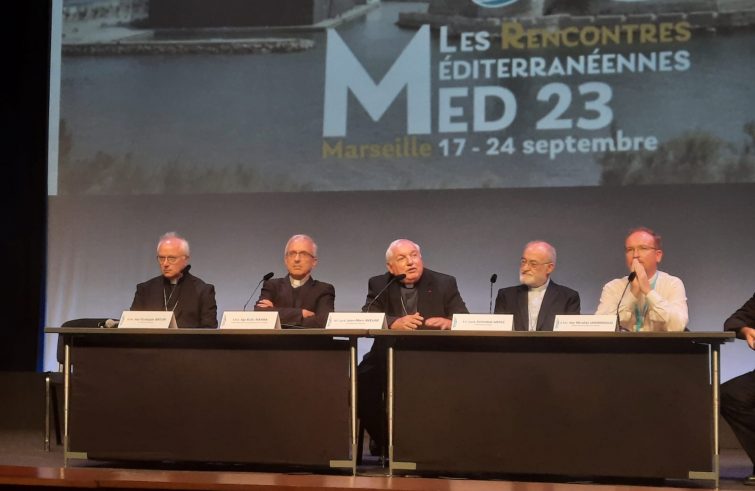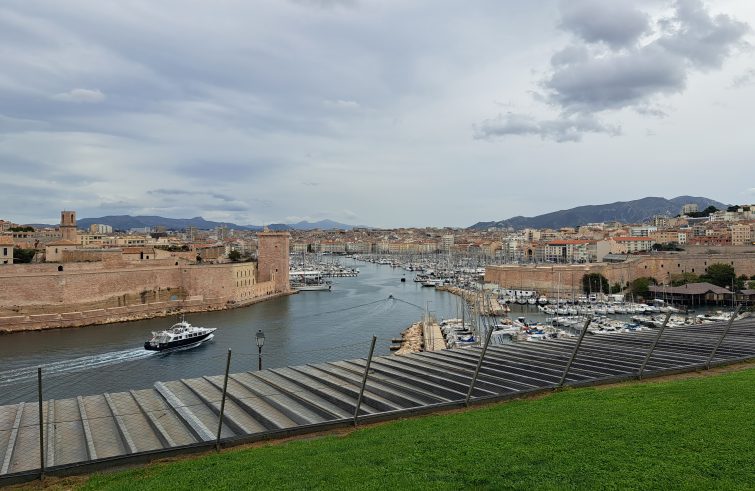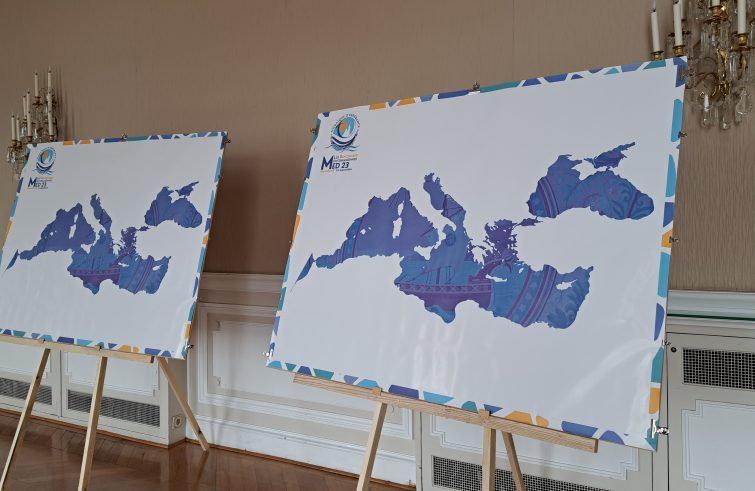
(from Marseille) “The Pope will reiterate here in Marseille what he has said on several occasions, namely that life is sacred and that we must do everything possible to save human life, reaffirming that people have the right to migrate,” said Card. Cristóbal López Romero, Archbishop of Rabat (Morocco), during a press conference at the Palais du Pharo in Marseille yesterday afternoon, outlining the themes at the heart of the Mediterranean meetings. The meetings are bringing together Bishops and young people from the countries on the five shores of the Mare Nostrum from 17 to 24 September, in preparation for the arrival of Pope Francis on Friday 22 September. Referring to the tragedies at sea and the migratory flows in the countries of first arrival, the Cardinal continued:
“The Holy Father will not offer practical solutions to the problem of migration. But he will reaffirm a clear principle: it is unacceptable to imagine a policy based on mere repression or the strengthening of a police regime. It is unacceptable to imagine closing all ports of entry, just as it is unacceptable to pay countries to prevent migrants from arriving.”
“Europe must begin to develop policies that have a positive impact on migration, by guaranteeing at least one port of entry.” “Moroccan young people are prisoners in their own country,” denounced the Archbishop of Rabat. “They cannot leave, they cannot go to Algeria because the border is closed, they cannot go to the south because there is the desert, they cannot go to the left because there is the sea. They cannot go to Europe because it is impossible for them to get a visa. We have to provide at least some points of entry, otherwise the situation will get worse.”
 The items on the agenda of the meeting in Marseille include the economy, education, employment, peace and ecology. On Saturday, the bishops and young people will present the Pope with a 10-page document.
The items on the agenda of the meeting in Marseille include the economy, education, employment, peace and ecology. On Saturday, the bishops and young people will present the Pope with a 10-page document.
“We cannot ignore the phenomenon of migration, which affects not only the Mediterranean region, but the whole of humanity throughout the world,” said Card. Lopez.
“The causes of migration include war, economic inequality and political persecution. Migration is not the problem.
“The phenomenon of migration is always an attempt to find a solution to problems that cannot be solved in the country of departure.”
News of deaths at sea arrive in Marseille, including babies just a few months old who have lost their lives after slipping out of their mothers’ arms. “It is not a sustainable situation if people continue to die trying to cross the sea in makeshift boats. What can we do as churches? First of all, to proclaim the human right enshrined in the Universal Declaration that every person has the right to remain in the place where he or she was born, but also the right to migrate. To be ‘free to migrate and free to stay’, thus creating the necessary conditions in the poorest countries so that young people can stay if they want to.”
 Libya, Tunisia, Algeria and Morocco. Msgr. Nicolas Lhernould, Bishop of Constantine (Algeria), represents the Apostolic Region of North Africa. ” Sadly, the Mediterranean has become Europe’s largest cemetery, but before reaching the sea, these young migrants were forced to cross the desert, risking their lives. Unfortunately, the Mediterranean is only the last leg of a long and dangerous journey. We collect testimonies of tragedy and death. The sea is certainly a place that attracts the attention of the whole of Europe, but we must also look further south”. The Algerian bishop clarified the principle of rescue:
Libya, Tunisia, Algeria and Morocco. Msgr. Nicolas Lhernould, Bishop of Constantine (Algeria), represents the Apostolic Region of North Africa. ” Sadly, the Mediterranean has become Europe’s largest cemetery, but before reaching the sea, these young migrants were forced to cross the desert, risking their lives. Unfortunately, the Mediterranean is only the last leg of a long and dangerous journey. We collect testimonies of tragedy and death. The sea is certainly a place that attracts the attention of the whole of Europe, but we must also look further south”. The Algerian bishop clarified the principle of rescue:
“When someone is suffering, we have a moral duty to help them. Therefore, anything that is contrary to this principle does not correspond to what we consider to be human and even less to the Gospel.”
“This fundamental care for the human person, according to the spirit of the Good Samaritan, is a principle that we always remind ourselves of, not in the naive way of those who do not look at the causes and do not know the consequences, but as a necessity. When someone is in danger, we must always do everything possible to save them. The Bishop referred to his experience in Tunisia and Algeria, pointing out that in recent years these countries have ceased to be countries of transit and have become countries of welcome. However, he warned Europe that “reception must not be imposed simply to get rid of the problem” because “sooner or later the problem will become more acute.” Msgr. Rafic Nahara, Latin Patriarchal Vicar for Hebrew-speaking Catholics in Israel, said that the Church should always work to “change the mentality.” “When there are many migrants arriving in a country, there is a fear of losing one’s identity”, he remarked. It is therefore necessary to address not only the question of welcoming those who arrive, but also the cultural aspect for the host, and to make people understand that “the other is not a threat, but a person who brings a different culture that can only enrich the countries where they arrive.”









